1100 words, a guest post by Claire Rudolf Murphy
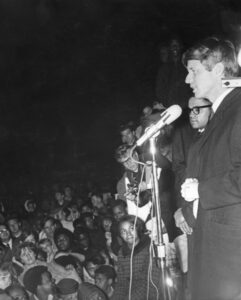 On the evening of April 4, 1968 Senator Robert Kennedy stood on the back of a truck, in a black neighborhood in Indianapolis, Indiana. But instead of telling people why they should vote for him for president, he had to announce that Martin Luther King, Jr. had been killed in Memphis, Tennessee.
On the evening of April 4, 1968 Senator Robert Kennedy stood on the back of a truck, in a black neighborhood in Indianapolis, Indiana. But instead of telling people why they should vote for him for president, he had to announce that Martin Luther King, Jr. had been killed in Memphis, Tennessee.
Riots had already begun to erupt in cities across the country, but the crowd in Indianapolis stood silent in grief. Bobby told them that he didn’t blame them for feeling angry. Instead he said that they had a choice about “what kind of a nation we want to be . . . and what direction we want to move in.”
ADVERTISEMENT
ADVERTISEMENT
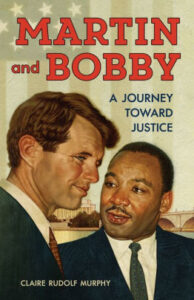 Bobby’s profound speech that night and one that prompted me to research and write my 18th book – Martin and Bobby: A Journey Towards Justice. Today is its publication birthday. Even though I was seventeen in 1968 and had a front-row seat to one of the most divisive and important decades in America’s history, I didn’t learn about Bobby’s April 4th speech until years later.
Bobby’s profound speech that night and one that prompted me to research and write my 18th book – Martin and Bobby: A Journey Towards Justice. Today is its publication birthday. Even though I was seventeen in 1968 and had a front-row seat to one of the most divisive and important decades in America’s history, I didn’t learn about Bobby’s April 4th speech until years later.
This book is the most personal of all my nonfiction titles because I knew about many of the events and people featured in the book. My parents were Kennedy Democrats and we often discussed politics around the dinner table in Spokane, Washington. We supported JFK for president and grieved with the nation when he was killed.
When Martin Luther King Jr. was assassinated, a nun at my high school, Holy Names Academy, posted this message on the classroom bulletin board: Christ the King, King the Christ. Some of the students said it was sacrilegious to compare King to Jesus. But I thought it was brave and was grateful that Sister Margaret helped me think about Dr. King in such a radical way. Martin Luther King cared about the poor and disenfranchised, just like Jesus did in the gospel stories I’d grown up with.
My family closely followed the 1968 presidential election too. My brother John supported Eugene McCarthy because he spoke out first against the Vietnam War. I remember that my parents were shocked when Johnson withdrew from the race. Right after midnight on June 5, 1968, my mother shook me awake. “Get up, Claire. History is being made.” Together we watched the chaos at the Ambassador Hotel in Los Angeles; the sobbing supporters had just learned that their candidate Bobby Kennedy had been gunned down in the hotel kitchen with Ethel by his side.
That fall my friends and I listened over and over to the poignant song “Abraham, Martin and John,” with its last stanza featuring Bobby. It gave me solace and still does today.
During the following decades I majored in history in college, got married, had two children, taught writing and drama, and then began writing books for kids and teens, most often about different aspects of American history. In 2012 my husband, mother and I watched the documentary A Ripple of Hope about Robert Kennedy. We sat mesmerized during his speech on the night of Martin Luther King Jr.’s assassination. None us had ever heard it before. Awed by the beauty of his words that touched the crowd so deeply, I had to learn more. I had to understand how Kennedy had such courage on a night when he took could have been killed. Why he was able to give such a powerful, healing speech on one of the worst days in America’s history.
Thousands of books, articles, blog posts, and documentaries feature King and Bobby Kennedy. Even though I’d grown up with King and Kennedy, there was so much to learn and people to interview. In 2016 I attended the 48th commemoration of Dr. King’s death and Bobby’s speech at the Landmark for Peace memorial in Indianapolis. I am grateful to the many people who shared their vivid memories from that April night in 1968. Many of them appear in the book, especially those who were teenagers that night.
During the 1960s civil rights protests, young people led the way and refused to give up. Teen protestors offer me hope now, fifty years later, as they lead us in Black Lives Matter, the Me Too movement, and school safety.
“A man may die, nations may rise and fall, but an idea lives on,” President John F. Kennedy said in a 1963 speech before his assassination. Martin’s and Bobby’s ideas—to end poverty, stop an unjust war, show compassion to all Americans— are still important today. And their words continue to offer inspiration and insight on how our country can heal and face the historic challenges of economic and racial inequality with compassion and activism.
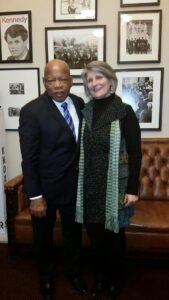 Like King and Kennedy, young leaders now demand that we take action, not stand on the sidelines. Because of that, during my book presentations this fall, a panel of middle school, high school and college leaders will discuss leadership today and what lessons from 1968 resonate with them.
Like King and Kennedy, young leaders now demand that we take action, not stand on the sidelines. Because of that, during my book presentations this fall, a panel of middle school, high school and college leaders will discuss leadership today and what lessons from 1968 resonate with them.
Civil rights activist John Lewis had just joined Bobby Kennedy’s presidential campaign the night Dr. King was killed. He stood in the crowd as Bobby spoke. His mentor’s Dr. King meant everything to him. In November 2014 I had the honor of speaking with him in his Washington, DC office. We spent an hour together talking about that profound time and what both men still meant to him.
Congressman Lewis has often said, “Whenever I have very tough decisions to make, I always think, ‘What would Dr. King do? . . . What would Bobby Kennedy do?’”
He is heartened that students and people of all ages are protesting more than at any time since the 1960s.
ADVERTISEMENT
ADVERTISEMENT
I am grateful that my work on this project offered me the opportunity to deeply study that important time and what it meant to the nation. It allowed me to reflect on what it can teach us today about the need for compassion in our political dialogue and personal interactions.
Meet Claire Rudolf Murphy

Paul Gildea
www.clairerudolfmurphy.com
Claire is the author of award-winning fiction and nonfiction books for children and young adults, including Marching With Aunt Susan: Susan B. Anthony and the Fight for Women’s Rights, My Country Tis of Thee: How One Song Reveals the History of Civil Rights, illustrated by Bryan Collier. Martin and Bobby: A Journey to Justice is her 18th book. She began her writing career in Alaska, where she lived for twenty-four years. Today she lives and writes in her hometown of Spokane, Washington. Since 2008 she has taught in Hamline University‘s low residency Writing for Children and Young Adults (MFAC) graduate program. Recent events have renewed her deep-seated passion for political activism. She enjoys music and outdoor activities with her husband, two grown children and their spouses, and grandson in Seattle.
About Martin and Bobby: A Journey to Justice
 Martin and Bobby follows the lives, words, and final days of Martin Luther King Jr. and Robert Kennedy. Initially wary of one another, their relationship evolved from challenging and testing each other to finally “arriving in the same place” as allies fighting poverty and racism. The stories of King and Kennedy reveal how life experiences affect a leader’s ability to show empathy for all people and how great political figures don’t work in a vacuum but are influenced by events and people around them.
Martin and Bobby follows the lives, words, and final days of Martin Luther King Jr. and Robert Kennedy. Initially wary of one another, their relationship evolved from challenging and testing each other to finally “arriving in the same place” as allies fighting poverty and racism. The stories of King and Kennedy reveal how life experiences affect a leader’s ability to show empathy for all people and how great political figures don’t work in a vacuum but are influenced by events and people around them.
Martin’s courage showed Bobby how to act on one’s moral principles, and Bobby’s growing awareness of the country’s racial and economic divide gave Martin hope that the nation’s leaders could truly support justice. Fifty years later, their lives and words still stir people young and old and offer inspiration and insight on how our country can face the historic challenges of economic and racial inequality.
(ISBN-13: 9781641600101 Publisher: Chicago Review Press, Incorporated Publication date: 10/02/2018)
Filed under: Guest Post
About Amanda MacGregor
Amanda MacGregor works in an elementary library, loves dogs, and can be found on BlueSky at @amandamacgregor.bsky.social.
ADVERTISEMENT
ADVERTISEMENT
SLJ Blog Network
The Shockingly Good Children’s Poetry of 2025
Magda, Intergalactic Chef: The Big Tournament | Exclusive Preview
Fifteen early Mock Newbery 2026 Contenders
When Book Bans are a Form of Discrimination, What is the Path to Justice?
ADVERTISEMENT




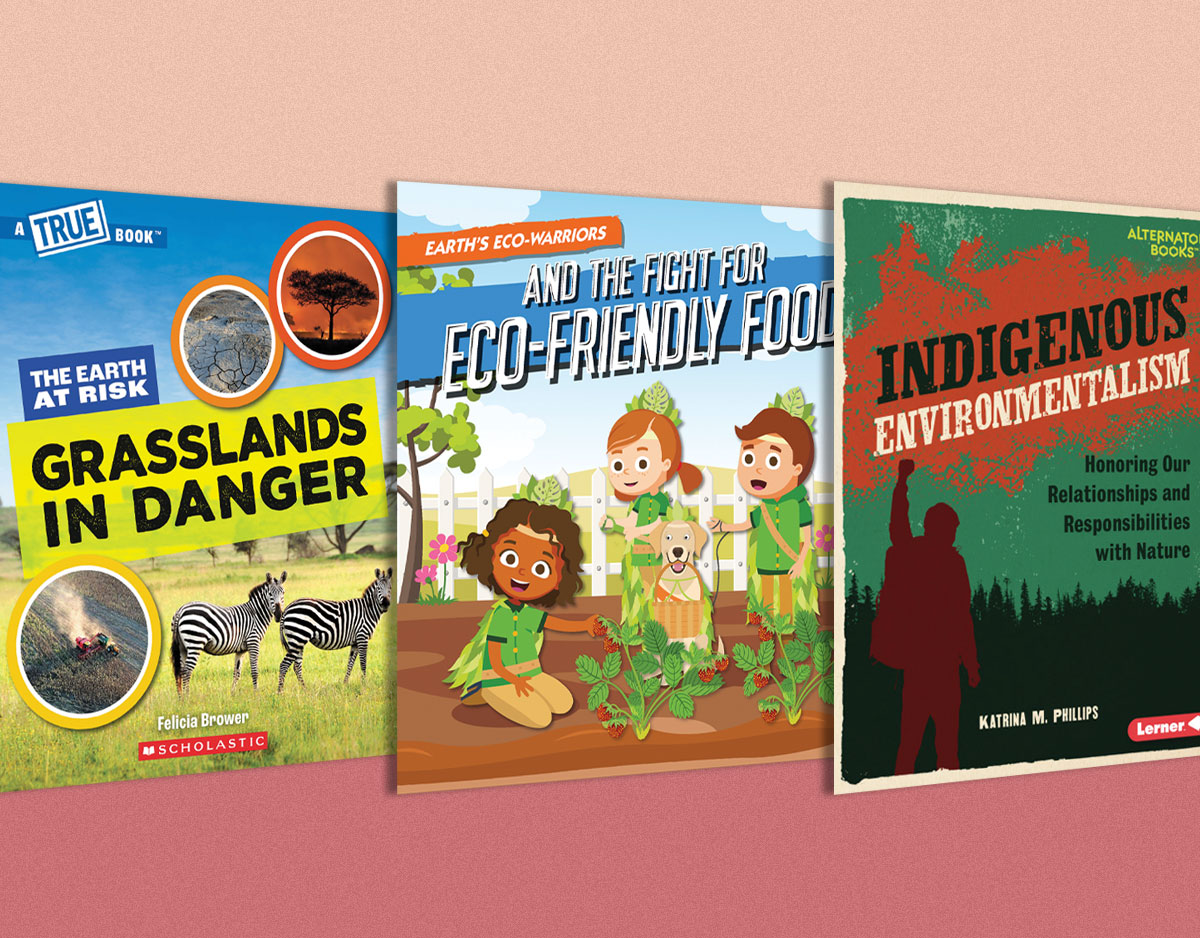
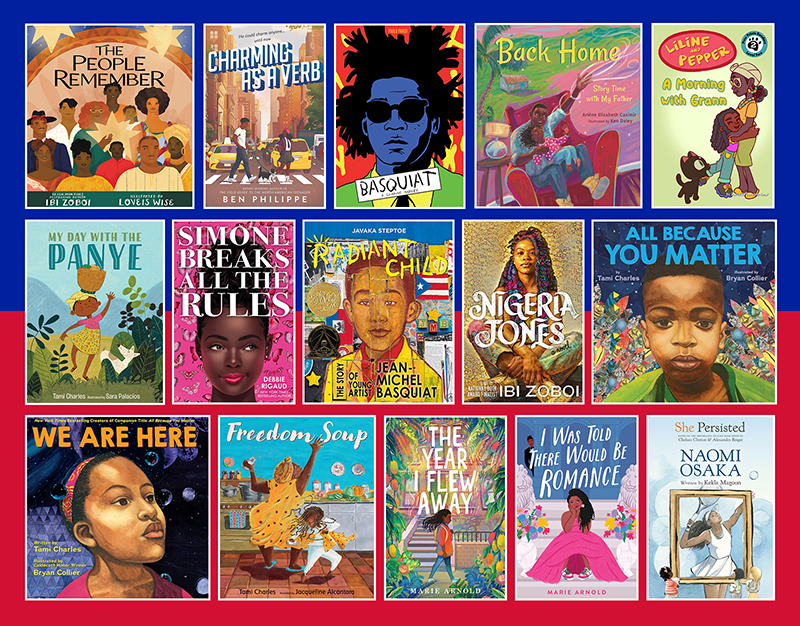
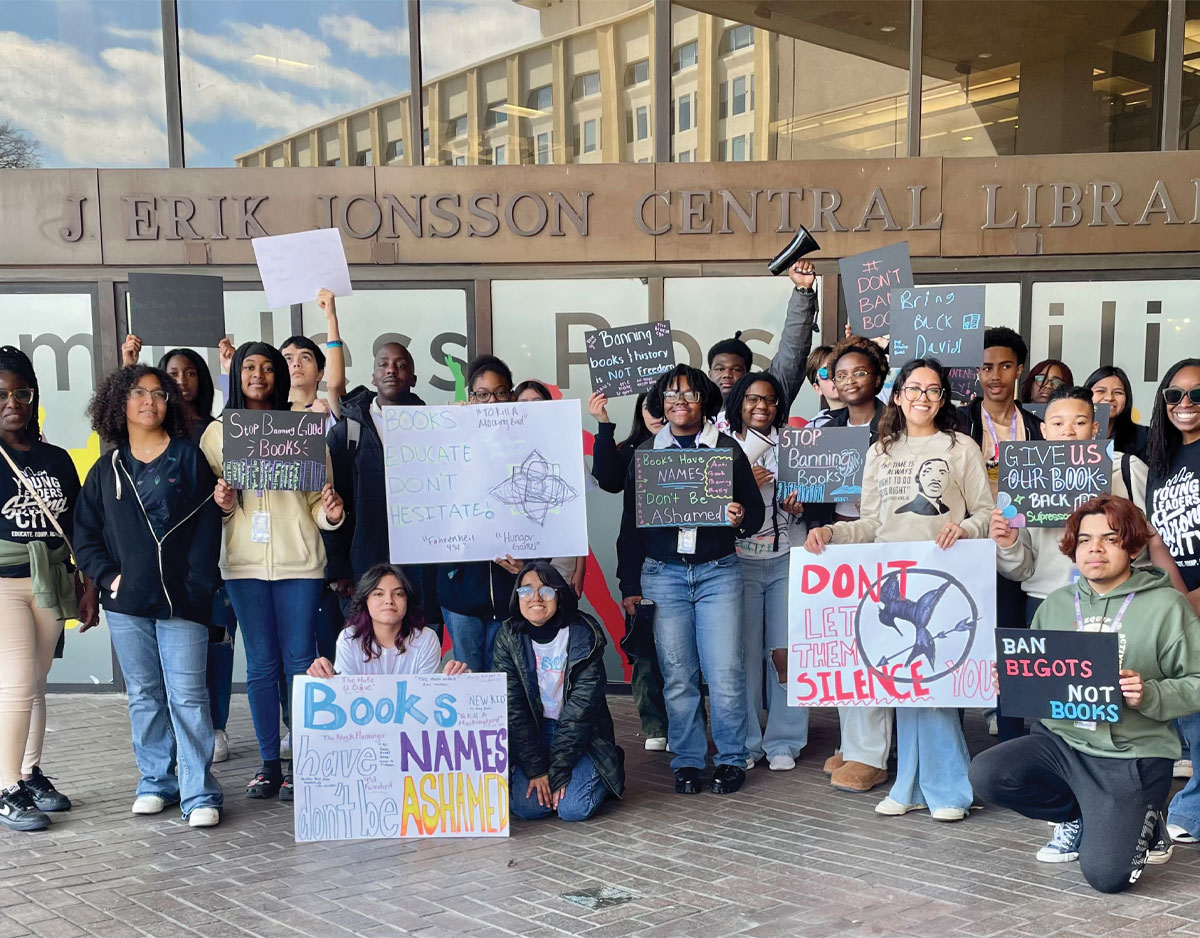
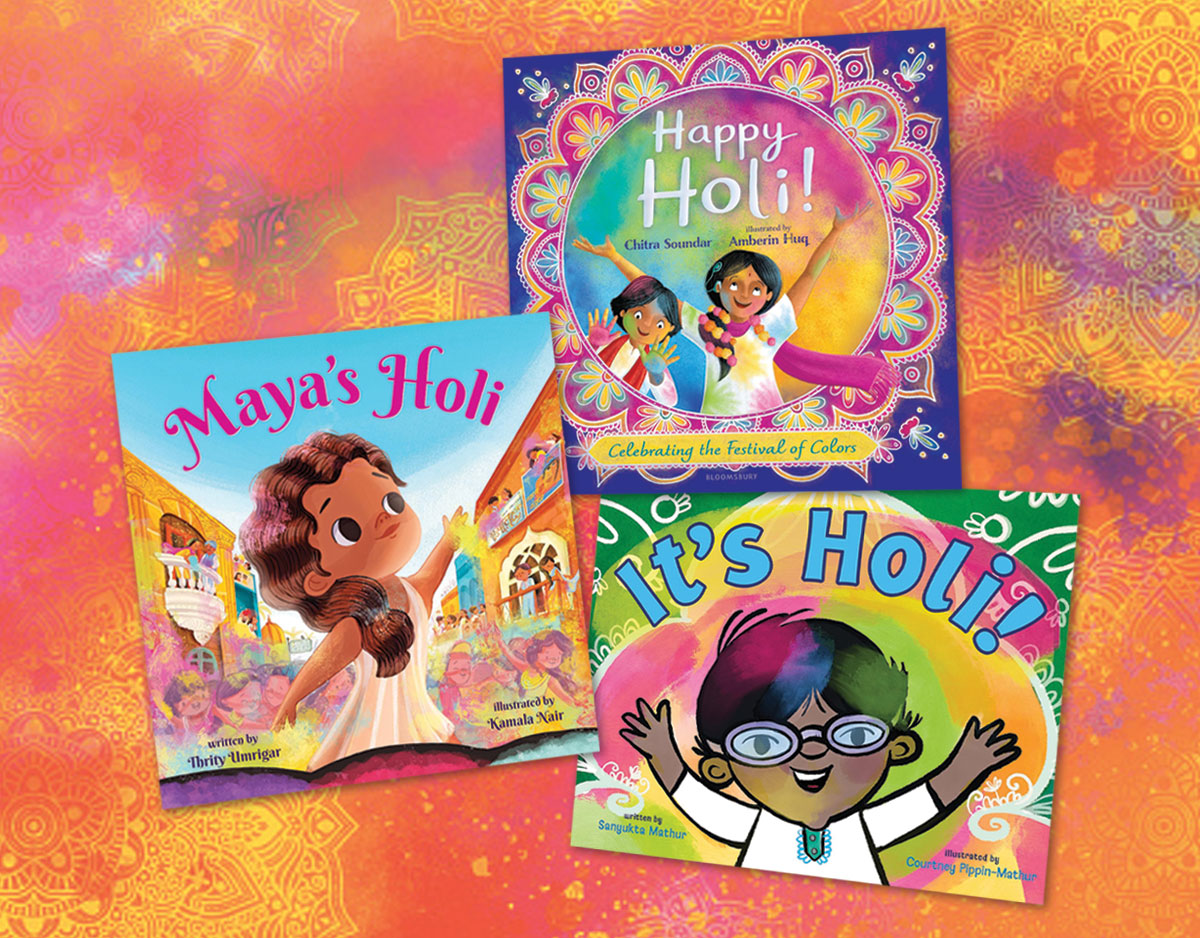
Can someone please tell the people at SLJ that by putting their website behind a paywall and/or registration requirement, they have done more to stifle important conversations about children’s literature than a hundred censors? I think Martin and Bobby would say, “Open it back up!” Looking at the few comments here at TLT, it looks like the change hurt you guys, too.